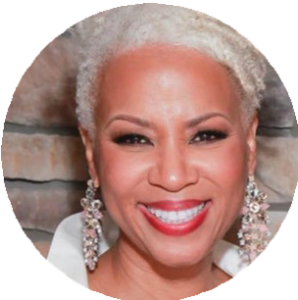BY: Evelyn Summerville
Women in leadership are heralded as a competitive edge. They have qualities such as compassion, empathy and inclusiveness, which align with modern styles of transformative and appreciative leadership.
Firms nationwide are instituting gender diversity policies, leadership development programs and affinity groups to allure and appease the women in their workforces. Yet, the question remains largely unanswered: What do women in leadership really want?
Career Mastered Magazine dares to change the conversation. We reached out to three women in executive positions for insights on what women in leadership want and inspiration on how they can get it. We asked each woman to share her perspective and success strategies with our emerging and experienced leaders.
To Have Relevant Work Options and Respect for Expertise
 Janice Cosby, Chief Communications and Marketing Officer of Ascension Michigan, believes the modern multi-tasking mode of life pushes women to want options for how and where they work. “We take care of our children parents, husbands and ourselves. It’s critically important for an employer to take all of this into consideration and allow you to bring your whole self, body, mind and spirit to work.”
Janice Cosby, Chief Communications and Marketing Officer of Ascension Michigan, believes the modern multi-tasking mode of life pushes women to want options for how and where they work. “We take care of our children parents, husbands and ourselves. It’s critically important for an employer to take all of this into consideration and allow you to bring your whole self, body, mind and spirit to work.”
One of her greatest needs is to unplug for personal down time. “I am on call 24/7. I have my phone with me all the time. I can be on vacation, but it’s very seldom that I put the phone away.
So, when I shut down, my team respects the fact that I want to spend some time regrouping.”
Like many in her profession, Cosby’s marketing expertise is often challenged by peers. She regards this as an opportunity to gain respect, build trust and bolster credibility. “You overcome that challenge by proving them wrong. You have to say to people, ‘Just trust me on this. Let me show you it can work and then, you find that it’s successful.’ The phones start ringing and people are happy that we’re getting calls. That makes all the difference in the world.”
Cosby has learned that you get what you want by speaking up, working hard, taking risks and demonstrating your value. Admittedly, she feels it is best to negotiate your needs up front. “It would be great if you could talk to your employer about those expectations before you start the job. But a lot of us, at times, don’t have the courage or intestinal fortitude to broach those subjects because we want to get in the door.”
To Have a Level Playing Field and Personal Development
According to Rashida Jones, Senior Vice President of Specials at NBC News and MSNBC, women expect the same opportunities and access as their counterparts. “If the playing field is not even company and how it operates. Use that as your source of information to gauge whether you are on the right track.
MSNBC, women expect the same opportunities and access as their counterparts. “If the playing field is not even company and how it operates. Use that as your source of information to gauge whether you are on the right track.
Her advice for women in leadership to get what they want is to own their brand and the outcome of their goal. “Go for it! Don’t be hesitant about investing in yourself and showcasing what you can do and who you are. Own your personal brand and how you market yourself. Step outside of your comfort zone every chance you get. What’s the worst that can happen?”
To Have an Active Family Life and Be the “CEO of Me”
 Nancy Olah is the founding attorney and LEED AP at Nancy Olah Law. Her career trajectory is marked by choices to be balanced. “When I began interviewing with law firms in The Carolinas, I was very clear with each of them that I didn’t want to be a partner.”
Nancy Olah is the founding attorney and LEED AP at Nancy Olah Law. Her career trajectory is marked by choices to be balanced. “When I began interviewing with law firms in The Carolinas, I was very clear with each of them that I didn’t want to be a partner.”
While acknowledging it is a tall order for companies to eliminate unconscious gender bias, Olah believes women in leadership want to be treated and compensated on par with a man of comparable skills, experience and strengths in the same position. She advises women to understand that they are more powerful and valued than they think and to be confident in their abilities.
“Each woman is different, and has unique needs and circumstances. But none of us should be afraid to tell our employer what we need to do the best possible job for them, while embracing the awesome gift and responsibility of being fully human for our families, our communities and ourselves.”


